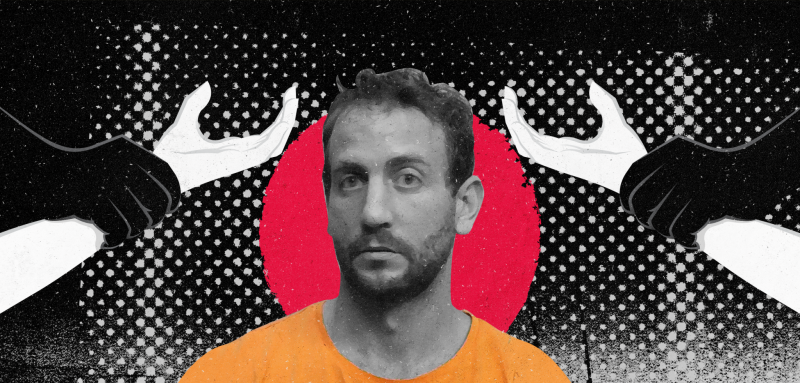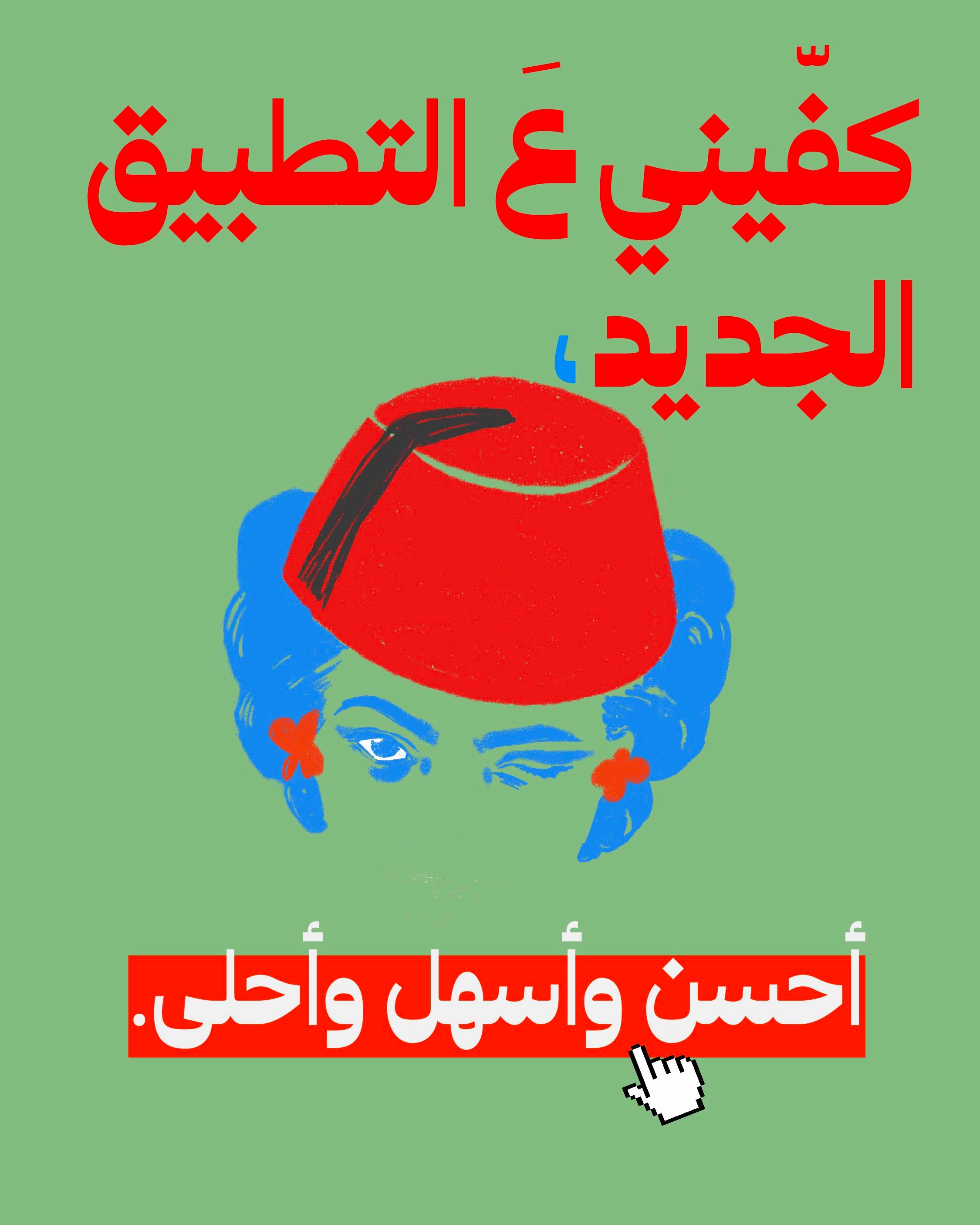“I feel embarrassed not to have figured it out immediately” is a statement you would hear a lot from sexual harassment and rape survivors, and all sorts of violations of anyone’s consent.
As I write these words, an immediate live translation of my feelings is happening in my body: tense neck and shoulders, quick and loud heartbeats, shivers, and heavy breathing. In other words, a panic attack.
Marwan Habib, a Lebanese serial sexual predator, finally appeared on the 8th of January, 2022, behind bars in Miami court, accused of breaking into a woman’s room in Miami and sexually assaulting her. In 2019, this same rapist has been given a platform to defend himself by Lebanese media channels, when dozens of survivors came forward and reported him for being a sexual predator. Lebanese law didn’t find him guilty for “lack of proof” and granted him the freedom to roam the streets, assaulting more women.
The only good news here is that Marwan Habib is present in Miami and is actually physically behind bars, unlike the priest Mansour Labaky, who was sentenced to 15 years of prison in November 2021, by a French court in Caen, in Normandy for the rape and sexual assault of 3 children in his orphanage. Nonetheless, Labaky still is freely roaming the churches and streets of Lebanon under the protection of the Maronite Patriarchy and Lebanese law.
I, a feminist in the making, am overwhelmed today by feelings of shame. For when I was younger, I smiled and allowed this rapist and sexual harasser to flirt with me, and when after a conversation of few minutes, he was suddenly holding me and trying to kiss me, I pushed him away with just a smile.
I am overwhelmed today by feelings of shame. For when I was younger, I smiled and allowed this rapist and sexual harasser to flirt with me, and after a conversation of few minutes, Marwan Habib was holding me and trying to kiss me, I pushed him away with just a smile.
‘How did I not dare to be a “killjoy”, and shout and push him with anger?’, isn’t this the hero story we hear from a lot of feminists who are fighting the rape culture? How can I come forward, and proudly state that I too survived this rapist, if I survived him with just a smile?
To be true to our cause as feminists, we should remind ourselves that all feminists are feminists in the making. This will allow us – feminists in the making and other women who are still unaware that the patriarchal construct has been internalized into our minds– to come up to other women and tell our stories. Tell our stories and get a caring hand to touch our backs and walk us out of the shame, guilt, and blame we are manipulated to feel by a rapist culture.
I write this article, still unsure what to call what Marwan Habib did to me, or even what to name myself in that context. I have long refused to call myself a survivor, but why? Is it because I didn’t find myself running in the streets? Do we need to run in order to call ourselves survivors? Or is it that the culture of naming, didn’t teach me that what happened was sexual assault, and therefore, I feel ashamed for ‘not figuring it out immediately’?
The problem with such a refusal is that it allows the predator to roam freely because what was about to happen didn’t happen to the extent of running in the streets, hence, not making it ‘enough proof’ for the law to convict him. What was about to happen – as if what happened wasn’t enough– was either unimagined in the mind of the survivor or marked as ‘only’ imagination. This devaluation of what was about to happen forces us women who are survivors of this assault, stand by the perpetrator and the law against ourselves and other victims.
The survivor of any form of contact with a rapist, is a survivor of fate, is a survivor of luck. And it is survivors of fate who must stand out of their self-blaming and accept that they were victims themselves in order to be able to stand by the side of other victims.
I as well, have refused to call myself a victim for a long period of time, but again, why? Was it not severe enough? Is it an exaggeration to be called a victim if we are not dead? Is the bar of violence too high, that anything that isn’t what movies and reports show us of rape, isn’t considered enough of an assault? Are we as women, vulnerable men, and trans people, refusing this term because it portrays us as weak, out-smarted, or lacking wittiness and social ques?
Language that names things by their name, is the apparatus that constructs are vulnerable to. To contribute to a culture that doesn’t stand by the rapist, we must teach the coming generations all the synonyms of the word ‘rape’, as well as, all the synonyms of the word ‘victim’. Today I learned the word ‘molested’ from a friend who was sharing her story about her doctor, but I wonder if what happened to me and her (our stories were exactly the same) was a story of a woman being ‘molested’ or ‘raped’ by her gynecologist.
This article is a plead to families, as well as schools in Lebanon and elsewhere, to raise generations that are aware of who the victim is and who the perpetrator is. Generations that don’t question the victim, but question the perpetrator. #MarwanHabib
This article is a plead to families, as well as schools in Lebanon and elsewhere, to raise generations that are aware of who is the victim and who is the perpetrator. Generations that don’t question the victim, but question the perpetrator. Generations that won’t find the line of rape and sexual assault so blurred that it would take them years to ‘figure it out’. Generations that can call what happens by its name. Generations that don’t call violence happening to women, children, vulnerable men, and trans people by softer names than molesting, sexual assault, or rape. Generations that won’t reason for the rapist and blame the victim. Generations that are not misogynistic, rapists, or homophobes. Generations that aren’t afraid to be bullied for rejecting rape. Generations that don’t rape. Generations that are feminists.
*The views and opinions expressed in this article are those of the author’s and do not necessarily reflect the official policy or position of Raseef22
رصيف22 منظمة غير ربحية. الأموال التي نجمعها من ناس رصيف، والتمويل المؤسسي، يذهبان مباشرةً إلى دعم عملنا الصحافي. نحن لا نحصل على تمويل من الشركات الكبرى، أو تمويل سياسي، ولا ننشر محتوى مدفوعاً.
لدعم صحافتنا المعنية بالشأن العام أولاً، ولتبقى صفحاتنا متاحةً لكل القرّاء، انقر هنا.


